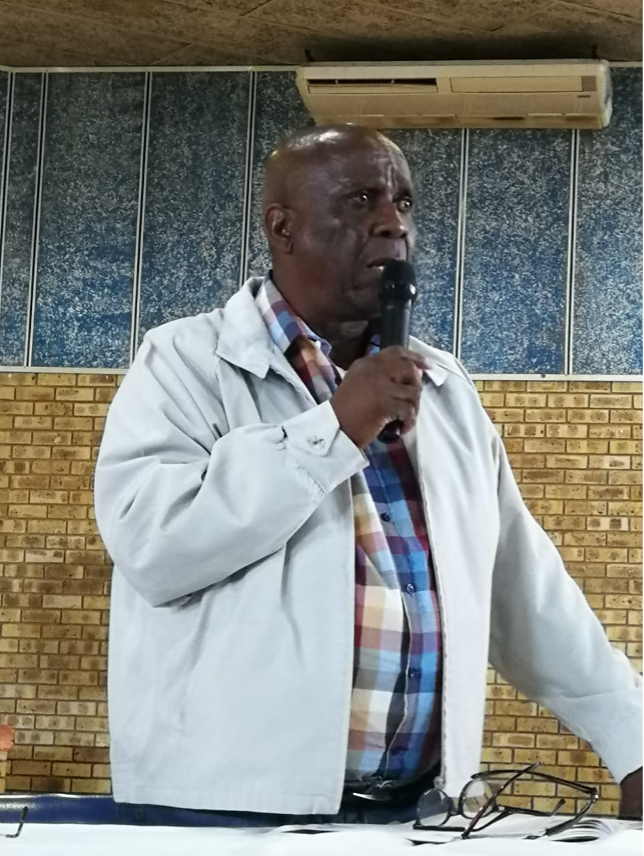Press Release: Revolutionising the Red Meat Sector: A Joint Project by Impala Rustenburg, Royal Bafokeng Nation, and SerDev
Impala Rustenburg, the Royal Bafokeng Nation (RBN) through Moumo Integrated Development, and SerDev have announced an innovative joint initiative to foster a robust and economically prosperous red meat sector within the RBN territory. This ambitious endeavour encompasses farmer development, progressive herd expansion, and value chain development.
Impala Rustenburg has taken the lead in launching the project by supplying start-up capital. The land belongs to the RBN, and the Bafokeng community owns the cattle. Overseeing the project on behalf of the RBN is Moumo Integrated Development Company, which will be concentrating on the commercial aspects, while SerDev will be responsible for providing essential services. The collaboration is open to other mining companies, funding institutions, and service providers, who are also invited to participate in this initiative.
Impala Rustenburg Chief Executive, Moses Motlhageng said, “Impala Rustenburg is honoured to play a pivotal role in this transformative initiative, which supports farmers in our local communities. This collaboration with the Royal Bafokeng Nation and SerDev invests in the critical agriculture sector and empowers our farmers to contribute to a sustainable, prosperous, and thriving industry and creates a better future for the Bafokeng community.”
In its inaugural stage, the project encompasses 80 square kilometres. This includes strategically located cattle posts in Mamarotse, Maile, Tantanana, Kopman, and Diepkuil. Distinguished by its lower population density and abundant grazing terrain, this region offers favourable conditions.
The core objective of this initiative is to transition conventional farming methods into a more economically vibrant agricultural model. This transformation centres around vital factors like optimising calving rates, improving genetics, enhancing carrying capacity, and reinforcing biosecurity measures.
The project will adopt SerDev’s development model, employing a tiered approach that assists farmers at different stages of growth. This approach encourages farmers to transition from traditional to commercial farming by offering various training and incentives.
A crucial aspect of the initiative involves enhancing calving and weaning rates. By prioritising the well-being and supplementary feeding of productive cows, the calving rate can rise significantly, from the usual 35% to an impressive 85%. This enhancement will enable farmers to generate greater income from their herds.
Each farmer’s production of 8 high-quality weaners annually holds the equivalent value of a full-time job for 12 months at the minimum wage in the agricultural sector. This breakthrough can lift traditional livestock owners out of the cycle of poverty.
The project’s success hinges on the significance of good genetics, which leads to healthier animals with improved feed-to-weight conversion. Gradually introducing quality genetic bulls will progressively enhance the herds. This proactive approach empowers farmers to replace unproductive, older, and ailing cattle with superior genetic heifers.
Carrying capacity is a critical factor, signifying the sustainable count of livestock that a particular area can support through grazing. The initiative will provide farmers with valuable insights into the significance of carrying capacity and the benefits of adopting a rotational camp system to maximise grazing efficiency. In addition, careful emphasis will be placed on optimising land usage, ensuring that every piece of land contributes to the collective welfare of the entire nation.
Ensuring the project’s success is closely tied to maintaining strong biosecurity measures and animal health protocols. The initiative will actively promote awareness around biosecurity practices, guaranteeing the presence of only healthy animals. A robust system will be implemented to forestall any infections or breaches in biosecurity. A critical aspect of this effort will be establishing rules and certifications that govern the purchase and sale of healthy animals, which farmers must adhere to.
Livestock owners within the Bafokeng community can register on the Royal Bafokeng Enterprise Development (RBED) database. Those who own livestock or are engaged in farming can apply to become beneficiaries of the Bafokeng Livestock program by completing an application form and submitting the required documents. These application forms will be distributed during community meetings held in the respective area.
The programme aims to include sheep and goats and contribute to developing a red meat sector for the Bafokeng.
With its emphasis on collaboration and education, this project can potentially transform the region’s red meat sector. By extending support to farmers, it envisions a shift out of poverty while simultaneously fostering a sustainable and prosperous industry. This endeavour holds the promise of elevating individual livelihoods and playing a pivotal role in cultivating a resilient and flourishing sector within the region.
The following photos were taken at a mass farmers Meeting at Mmanape High School in Tsitsing, Bafokeng on 16 September 2023.




Share
Recent Post
- Quick Links
- Home
- About Us
- Our Story
- Our Role
- How We Work
- Leadership
- Quick Links
- Contact Details
- 50 Reitz StreetKroonstad, FS, South Africa
- +27 60 965 5004
- jerome@sernickgroup.co.za
